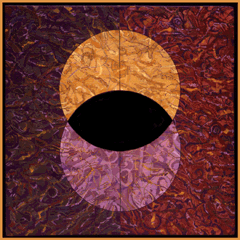Merry Christmas eve, everyone and Happy Tefillah Tuesday!
As we approach this Christian holiday, I thought it would be nice to say a short word about the intersection of Judaism and Christianity in prayer.
John Hick [d. 2012], a Protestant theologian and philosopher of religion, developed the view that our diverse religions are “different human responses to one divine reality.” This theory of religious pluralism seems right on target to me. God is real, infinite and transcendent, but each person’s and each culture’s perception is necessarily limited and conditioned by our place in the world. No one religion is perfect, but we all reach from our particular place on earth toward the heaven that contains us all. That is especially true of Rabbinic Judaism and Christianity. We emerged at a similar time and place, inheriting the same Scripture and web of ideas, even as we often take them in different directions.
So on this Christmas eve, I thought I would say a word about the most widely recited Christian prayer, Pater Noster, or “the Lord’s Prayer,” which seems to share so much with our own early Jewish liturgy. The source in Christian scripture is Matthew 6, from the “Sermon on the Mount,” and is more or less paralleled in Luke 11. Jesus is portrayed as instructing his disciples to pray this liturgy, and to this day, most Christian churches recite it, often surrounding the communion. Here is the translation in the Anglican/Episcopalian Book of Common Prayer:
Our Father, who art in heaven, Hallowed be thy Name;
Thy kingdom come; Thy will be done in earth, as it is in heaven:
Give us this day our daily bread.
And forgive us our trespasses, as we forgive them that trespass against us.
Lead us not into temptation, but deliver us from evil:
For thine is the kingdom, the power, and the glory, forever and ever.
Translate this back into Hebrew and Aramaic and a davvening Jew can recognize so many familiar phrases. The prayers begin with Avinu she’bashamayim. “our parent in heaven.” That phrase can be found in rabbinic literature, like Mishnah Sotah 9.15, and begins the modern prayer for the State of Israel.
The next lines obviously resonate with our Kaddish: hallowed by thy name is a near match to יתקדש שמיה רבא/yitkadash shemei Rabbah, “hallowed be his great name.” Then comes thy kingdom come, thy will be done. That sounds pretty much like ימליך מלכותיה/yamlikh malkhutei, “may his dominion be proclaimed” and בעלמא דברא כרעותיה/be’alma di’vra ki’re’utei, “by his will, in the world he created.” It’s not an exact match, but these two prayers clearly draw on the same themes and use the same expressions: that in this imperfect world, we should pray (and work) so that God’s majesty be revealed, God’s name be sanctified, all according to God’s will.
Lead us not into temptation. That’s still in our siddur too, in the early sections of the morning prayers: ואל תביאנו … לא לידי נסיון/al tevienu… lo lidei nisayon. And the final portion sounds awfully like I Chronicles 29:11: לך ה’ הגדולה …/lekha Adonay haGedullah, “yours is the majesty and the might …”
There is an awful lot of division in the world, yawning chasms that convince one culture that we are mortal enemies and cannot speak the same language.
On this silent night, holy night, let’s pray for peace on earth and good will to all people. Hallowed be God’s name. May God’s kingdom come. God’s will be done, on earth as it is in heaven. Amen.





